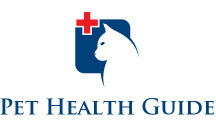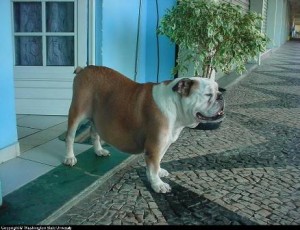Dog heart problems or canine heart disease refers to problems with either the structure/anatomy or functioning of the heart. The role of the heart is to move nutrients via the blood supply to various parts of the body through the arteries and capillaries, and then to remove the result of this process such as waste through the veins, which brings the blood back to the heart.
The heart is designed to send enough blood through this system so that the body can function properly. Dog heart disease is the general term used to describe any problem with this system. This does not mean that a dog has canine congestive heart failure, which is a condition where fluid builds up in the body.
Contents
Dog Heart Disease Symptoms
Dog heart disease symptoms include those that can by clinically observed and those that require special instruments to detect.
- Clinical Heart Disease Symptoms
- Lethargy
- Temporary loss of consciousness (called syncope)
- Reduced stamina and weakness
- Dog Respiratory Problems
- Difficulty breathing (Dyspnea)
- Wheezing
- Cough
- Difficulty breathing when lying down (orthopnea)
- Abdominal distention
Types, Symptoms and Treatment of Dog Heart Problems
There are several types of canine heart problems that can be diagnosed. These include:
Chronic Mitral Valve Insufficiency (CMVI)
Canine chronic mitral valve insufficiency (CMVI) is a disorder where the mitral valve starts to degenerate or not work properly. This is a common condition in older small breed dogs and is the problem in 75% to 80% of canine heart disease cases. The disease causes the valve leaflets to thicken, lengthen and then shorten.
This is an inherited condition in Dachshunds and Cavalier King Charles Spaniels and in larger breeds such as German Shepherds. Dogs with CMVI don’t always show any clinical signs of heart disease, since the disease progresses slowly.
Symptoms can include coughing, and in later stages of the disease canine congestive heart failure. Once it reaches this stage, then other symptoms associated with congestive heart failure in dogs include some of the symptoms listed above such as exercise intolerance and exercise intolerance. Some dogs may experience a temporary loss of consciousness.
There is some evidence that dog heart medicine such as ACE inhibitors and beta blockers may slow down the progression of congestive heart disease in dogs. Surgery is often used to correct any anatomical defects. Supportive natural dog heart remedies such as Heart & Circulation Tonic, can be used in addition to conventional treatment to strengthen the circulatory system and heart during treatment and to sustain the systems health after treatment.
Cardiomyopathy (dog enlarged heart)
Canine cardiomyopathy is a disorder that refers to a problem with the myocardial tissue. There are several types of cardiomyopathy:
Dilated Cardiomyopathy (DCM): the cause of this type of canine enlarged heart is largely unknown with the exception of a few breeds:
Doberman Pinschers – thought to be a genetic cause. Accounts for 30% of sudden death cases in Dobermans Cocker Spaniels – taurine deficiency Boxers – caratine deficiency
Hypertrophic Cardiomyopathy (HCM): refers to a thickening of the ventricular walls. The condition is rare in dogs.
Symptoms associated with canine enlarged heart (DCM) includes respiratory issues such as wheezing or cough (72% of dogs),
weight loss, anorexia (appetite loss),extremities (limbs) that are cool to the touch, exercise intolerance, weakness, fainting or temporary loss of consciousness, restlessness at night, difficulty breathing when lying down (orthopnea), abdominal distension (Ascites).
Treatment heart disease dog for canine enlarged heart involves the use of an ACE-inhibitor if a dog has DCM, but is not showing clinical symptoms. There is some evidence that this approach delays the onset of symptoms. One symptoms begin, ACE inhbitors along with Pimobendan (dilates or opens up passages in the heart) and Furosemide to help with respiratory issues are used. Salt intake and exercise are also restricted.
Natural remedies such as Heart and Circulation Tonic can also be used to help with dog enlarged heart. These types of tonics work to strengthen heart health and maintain normal function. It also helps during the healing process.
There is a mixed prognosis for the dog enlarged heart condition (DCM) with giant breed dogs surviving for a median of 91 days, large breed dogs for a median survival time of 137 days, Cocker Spaniels have a media survival time of 300 days and Doberman Pinschers that take ACE inhibitors can survive for 4 to 6 months.
Boxer Cardiomyopathy (Boxer canine enlarged heart)
Boxer cardiomyopathy is an inherited disorder in Boxers that is characterized by dog heart arrhythmia, fainting (syncope) and sudden death. In occurs in Boxers who are between age 1 and 15, with most cases occurring after age 6. It is also calledArrhythmogenic Right Ventricular Cardiomyopathy (ARVC). The difference between Boxer Cardiomyopathy and canine cardiomyopathy is that Boxers do not show certain symptoms that are common in other dogs with the canine enlarged heart problem such as systolic dysfunction (problems with the way the heart pumps).
Boxers with dog heart problems such as Cardiomiopathy can show no symptoms, or show symptoms such as brief periods of fainting or unconsciousness or canine congestive heart failure on the left side. If a veterinarian chooses to treat a Boxer that shows no symptoms, the dog heart medicines used are Sotalol or a combination of Mexiletine and Atenolol. Natural heart tonics and supplements such as Heart and Circulation Tonic can also be of help during treatment and recover.
References:
Dog Health Handbook – Dog Heart Disease
Dog Health Guide – Congestive Heart Failure in Dog



